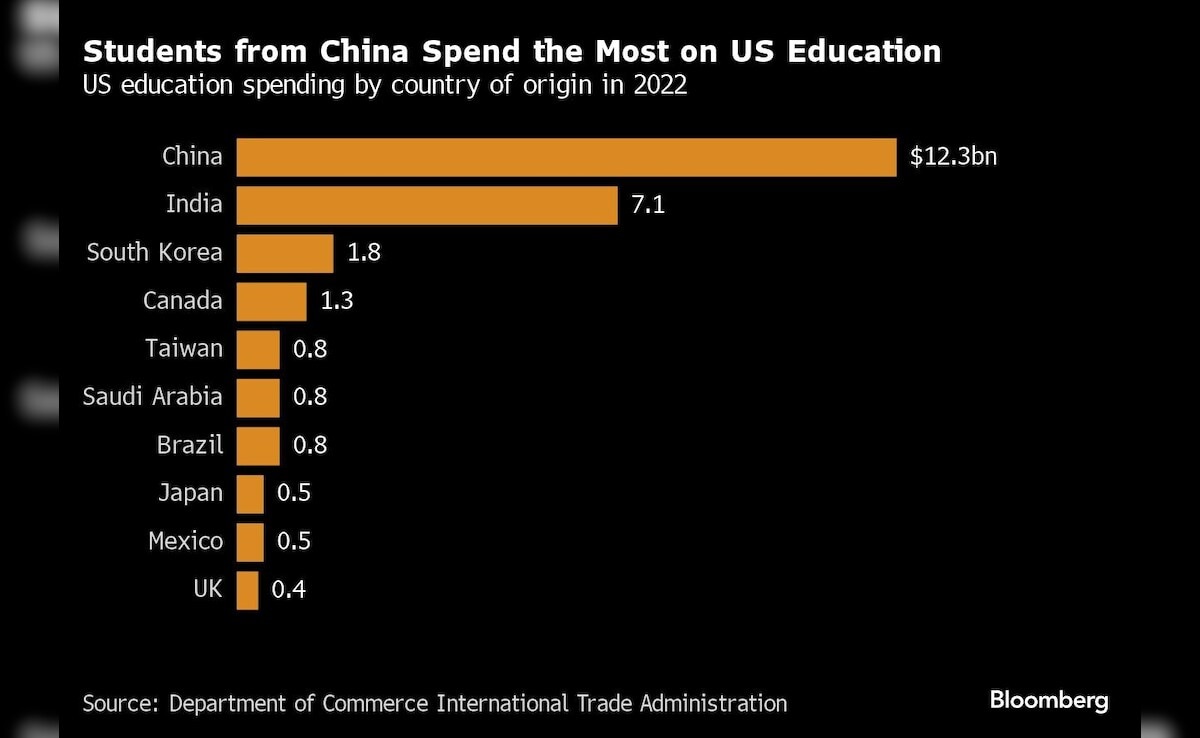
India now has the largest population in the world, surpassing China.
The number of international students at US colleges and universities has nearly recovered from a Covid-related decline as a surge in Indian pupils helped make up for a loss in students from China.
The number of foreign students at US schools rose 12% in the 2022-2023 academic year to nearly 1.06 million students, within striking distance of 2019, according to Open Doors data from the Institute of International Education.
“The US remains the destination of choice for international students wishing to study abroad, as it has been for more than a century,” said IIE’s chief executive officer, Allan E. Goodman.
While foreign enrollment dipped in 2020 due to lockdowns, demand is coming back. The number of students from India shot up 35% to roughly 269,000 from 199,000 the previous year, catching up on the number of students from China, which was flat at about 290,000 in the 2022-23 school year.

And while Chinese students are still the largest foreign nationality on US campuses, middle-income families from China are increasingly looking at cheaper destinations, such as the UK and Australia or foregoing foreign degrees altogether. Some students are also staying in Asia, the British Council wrote in a May report, picking instead Singapore, Hong Kong or Malaysian universities.
Young Indians’ interest in US universities can be explained in part by India’s economy, which expected to grow 6.3% this year and the next, according to the World Bank. That’s boosting incomes and wealthier families are more likely to send their kids abroad to improve their job prospects.
A foreign degree can also improve low and middle-income families’ social status and marriage prospects, experts say. A lack of education options at home has also contributed to the rise in US enrollments.
During the Trump administration, visa curbs and fears around personal safety led some students from India to reconsider their choice to study in the US. But US-India relations have improved since.
India now has the largest population in the world, surpassing China, and half are under the age of 30. By contrast, China’s stalling economic growth has dampened enthusiasm for education abroad, with many families also concerned about US-China relations, anti-Chinese sentiment and safety in the US.
“Families from smaller cities are worried about tensions in the US and about costs,” said Zhou Huiying, founder of Shanghai-based consultancy Lideyouwei Education Technology.
(This story has not been edited by NDTV staff and is auto-generated from a syndicated feed.)




